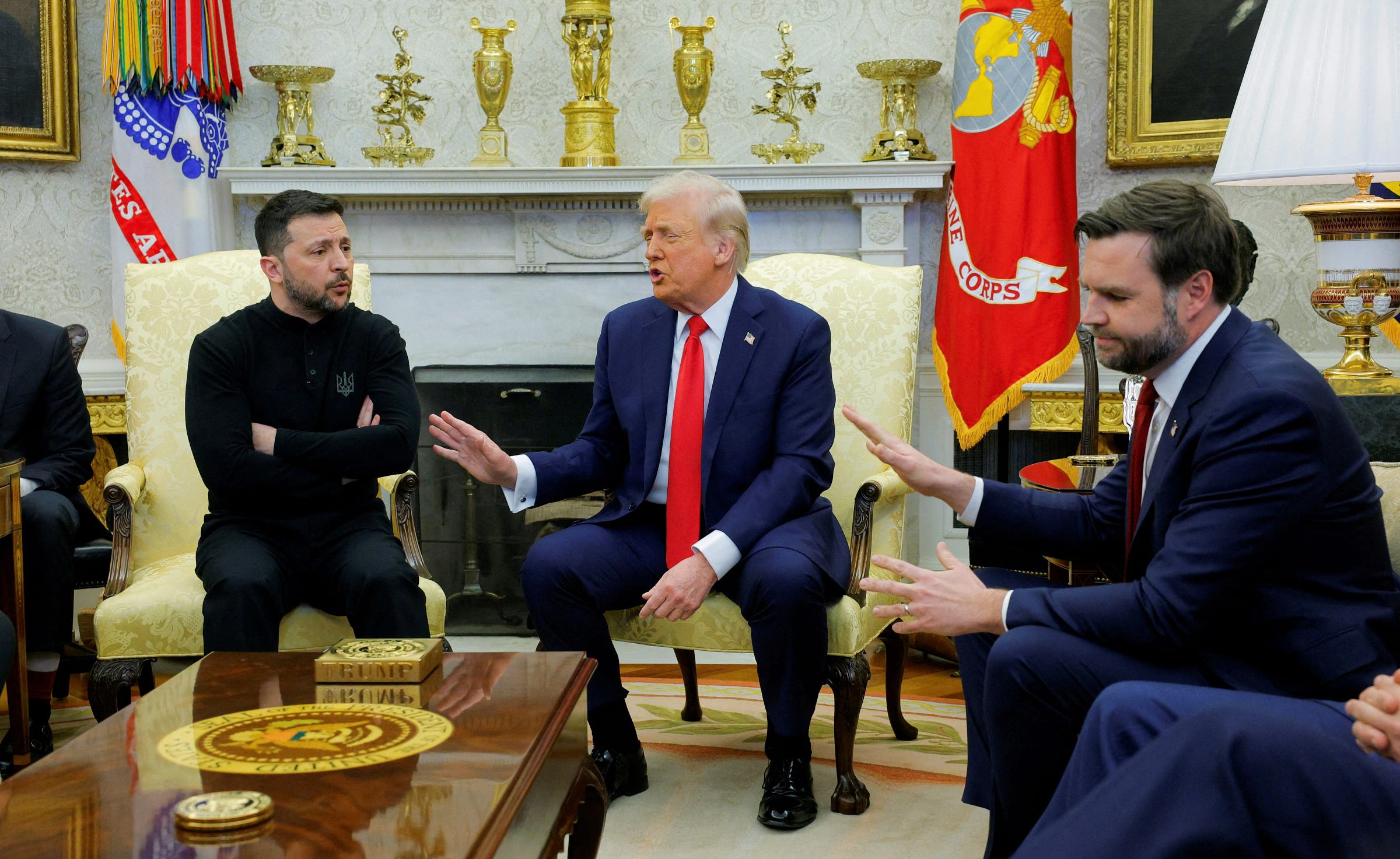Europe Must Stand on Its Own Feet After Oval Office Debacle
The failed talks between Trump, Vance and Zelensky reveal that Europe must rebuild its sovereignty, military strength and cultural identity to face a future without American protection.
Yesterday's chaotic Oval Office meeting between Trump, Vance, and Zelensky exposes a harsh truth: Europe can no longer depend on American protection. The time has come for Europe to reclaim its sovereignty and rebuild as an independent power.
A Diplomatic Theater With No Happy Ending
Yesterday's chaotic scenes in the Oval Office revealed more than just diplomatic tension—they exposed the fundamental weakness of Europe's strategic position. As President Trump, Vice President Vance, and President Zelensky engaged in their uncomfortable public spectacle, one truth became painfully clear: Europe can no longer rely on American protection.
The awkward press conference featured about 40 minutes of relative calm before descending into 10 minutes of complete chaos. This final meltdown was likely never intended to produce meaningful results. Each participant appeared to be performing for different audiences—Trump and Vance signaling to their base, Zelensky demonstrating resolve to European allies. Without concrete security guarantees, any agreement would be meaningless for Ukraine, a reality all parties surely understood beforehand.
When Vance spoke of diplomacy as a "new strategy"—ignoring numerous failed diplomatic initiatives—he crossed a line that provoked Zelensky's visible frustration. The subsequent breakdown wasn't merely a failure of diplomatic protocol but the public collapse of a relationship Europe has staked its security upon.
The Price of Misguided Priorities
This moment of crisis presents an opportunity if European nations are willing to confront uncomfortable realities. The time has come for Europe to emerge as a third global power, independent from both Eastern and Western influence. However, the path forward requires acknowledging our current weaknesses.
European leadership has squandered decades pursuing ideological luxuries while our industrial and military capabilities have atrophied. While obsessing over multicultural social engineering, progressive identity politics, and globalist agendas, we've neglected the fundamental responsibilities of sovereign nations: securing borders, building defensive capabilities, and fostering national cohesion.
The defense of European nations begins with domestic policy. A society divided against itself cannot stand firm in the face of external threats. This principle applies whether discussing Sweden's defense posture or the broader European security architecture.

Reclaiming National Identity and Purpose
To rebuild our defensive capabilities, we must first address the internal fragmentation deliberately cultivated across the political spectrum. The active policies of societal division pursued with increasing fervor since the latter half of the 20th century have undermined the very foundations of national identity and common purpose.
Strengthening national defense requires citizens who understand their shared heritage and believe their nation is worth defending. In practical terms, this means confronting difficult questions about immigration, assimilation, and the presence of potential fifth-column elements within our societies. Nations with higher social cohesion demonstrate greater willingness to defend their collective interests.
The current crisis in Ukraine and the uncertain American commitment should serve as a wake-up call. European nations must rapidly rebuild industrial capacity, military strength, and most importantly, a sense of shared purpose. This demands breaking free from the ideological constraints that have guided European politics for generations.
Although European establishment politicians show little appetite for such fundamental reassessment, events are accelerating rapidly. The dramatic scenes in Washington should catalyze serious reflection across European capitals. We cannot hold our breath waiting for political leadership to regain sense—we must push the conversation forward ourselves.
Europe stands at a crossroads. We can continue our dangerous dependence on unreliable partners, or we can reclaim our sovereignty and rebuild our strength. The choice should be obvious, but making it requires courage our leaders have thus far failed to demonstrate.
■
On Sovereign Europe, I provide in-depth analyses that go beyond surface-level reporting to examine the true implications of European political developments. These analyses are complemented by timely comments on current events and educational pieces to give you a comprehensive understanding of European politics from a sovereignty-focused perspective.




We should be thankful that the Americans are finally taking their globohomo hand from us. Not to the Americans, but to Providence or whatever you feel like believing in. If we can get a stronger Europe without having to forcefully kick out both Russians and Americans from Europe, all the better. Grovelling in front of America, begging them to get the Russians out, only puts us in the same position as before 2014.